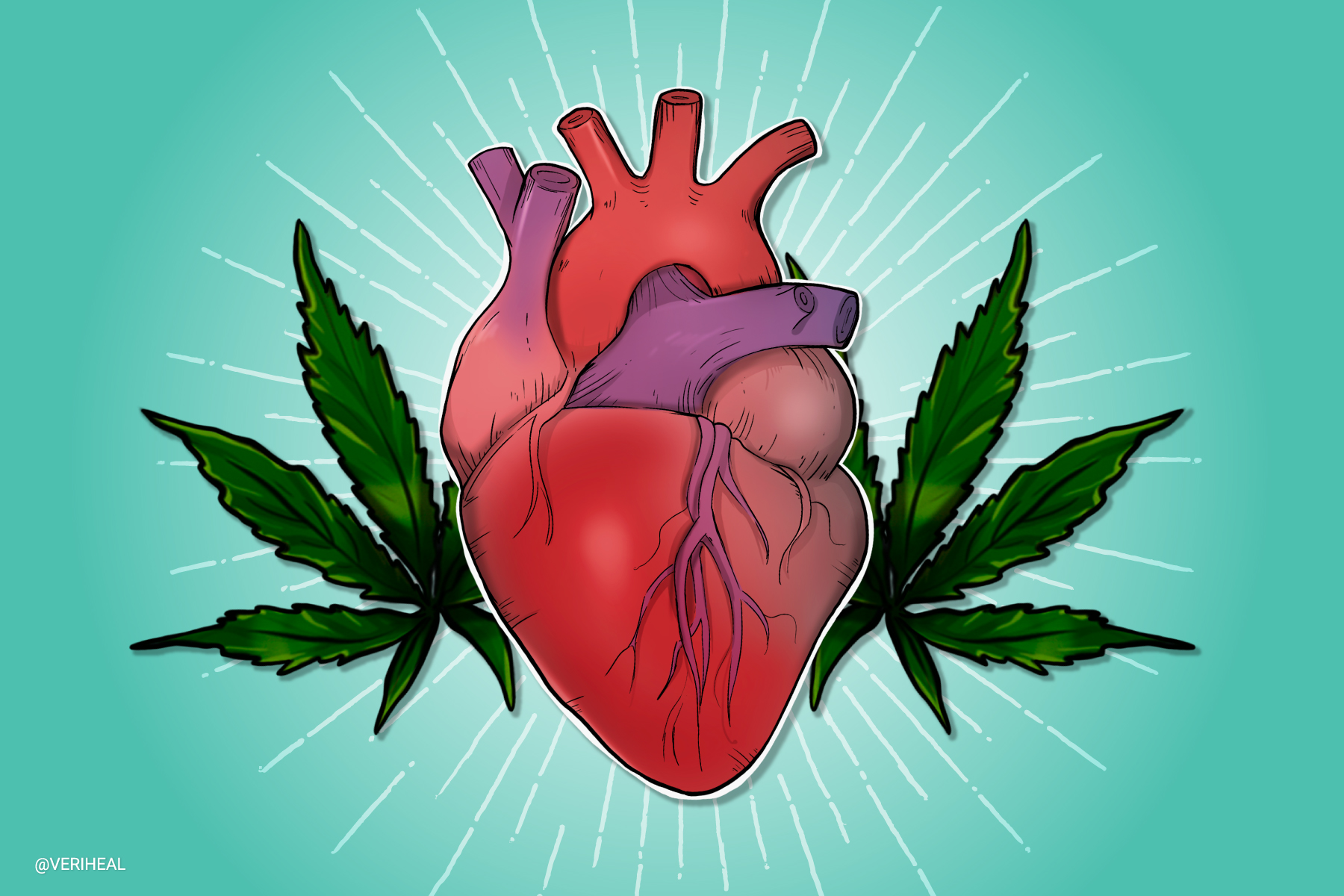Did you know that approximately one in 18 people has an arrhythmia? That’s equivalent to 5% of the U.S. population. Some of the most common suddenly-occurring cardiac fatalities happen as a result of arrhythmia, which is characterized by an abnormally fast or irregular heart rhythm. While traditional methods of treatment – such as anti-arrhythmic drugs, medical procedures, implantable devices, and surgery – can prove effective in many cases, these options are not the most convenient. This is where CBD comes in.
The Cannabis Sativa plant has earned a positive status as a therapeutic powerhouse. One of the plant’s primary active compounds is a cannabinoid called “cannabidiol”. Better known by its abbreviation, “CBD”, this cannabinoid has been highlighted as a potential option for maintaining healthy cardiovascular function. Moreover, studies suggest that CBD could even prevent heart disease.
A natural vasodilator (drugs that open the blood vessels) CBD can widen the blood vessels. Since this process is regulated by the endocannabinoid system (ECS), it seems fitting that cannabis can positively impact the life of someone who suffers from heart arrhythmia.
CBD Popularity is Gaining Momentum
Before we explore the ways in which CBD could help with heart arrhythmia, take a moment to enlighten yourself on this up-and-coming plant-derived compound. Non-psychotropic – meaning that it does not cause mind-altering effects, unlike its cousin cannabinoid THC (tetrahydrocannabinol) – CBD is becoming the focal point of many new research studies.
According to a 2018 report commissioned by the World Health Organization (WHO), CBD may prove useful in mitigating the symptoms of debilitating diseases/conditions, such as Alzheimer’s disease, anxiety, cancer, depression, insomnia, multiple sclerosis (MS), and Parkinson’s disease; many of these conditions are featured on the list of qualifying conditions in states that have legalized medical cannabis.
But is it really possible for CBD to support heart health?
Why You Should Get Your Medical Marijuana Card
Veriheal has satisfied millions of patients nationwide by giving them access to these benefits
- Larger purchase limits
- Peace of mind
- Enhanced legal protection
- Access to higher potency strains
- Save up to 25% on cannabis purchases
- Skip the line at the dispensary
This high-demand cannabinoid accounted for a USD $2.8 billion global market in 2020. Fast becoming a mainstream market, the ever-evolving realm of CBD provides consumers with smokeless methods of administration, such as capsules, topical lotions, oils, oral sprays/drops, suppositories, edibles, and infused beverages. Some manufacturers are even dabbling in CBD-infused clothing!
What Are the Main Types, Causes, and Symptoms of Arrhythmias?
The speed of heart rate will determine what type of arrhythmias a doctor diagnoses his/her patient with. Anyone who experiences heart palpitations, chest pain, fatigue, dizziness/lightheadedness, irregular heartbeat, and/or shortness of breath should have their pulse checked by a healthcare professional.
Typically, doctors will provide a diagnosis for one of five main types of arrhythmias:
- Ventricular Fibrillation: Recognized as the most common life-threatening arrhythmia, ventricular fibrillation occurs when impulses are released from the heart’s lower chambers in a disorganized fashion.
- Tachycardia: This type of arrhythmia is diagnosed by a fast heart rhythm that registers more than 100 beats per minute.
- Bradycardia: Unlike tachycardia, bradycardia is a type of arrhythmia diagnosed by a slow heart rhythm that generates under 60 beats per minute.
- Supraventricular arrhythmias: When arrhythmia originates in the heart’s upper chambers. A.K.A. the “atria”, it is identified as a supraventricular arrhythmia
- Bradyarrhythmias: Disease that erupts within the heart’s conduction system – including the sinoatrial (SA) node, atrioventricular (AV) node, or HIS-Purkinje network – can cause the heart rate to slow down, thus resulting in bradyarrhythmias.
Although the specific cause of arrhythmias is not always understood, a number of factors could spark a cardiovascular problem of this kind. For example, aside from underlying medical conditions, arrhythmias may transpire due to high blood pressure (HBP), heart attack-related injuries, valve disorders, cardiomyopathy (heart muscle) changes, and coronary artery disease.
Studies on CBD and Heart Health Offer Hope for Arrhythmia Patients
CBD’s anti-inflammatory and antioxidative properties could play an important role in maintaining heart health. In fact, a 2017 study carried out in England and published in The American Society for Clinical Investigation discovered that CBD can improve resting blood pressure and stress-related blood pressure increases in patients. Since high blood pressure can cause the arteries to narrow, thus restricting blood supply to the heart, this study portrays CBD as a beneficial tool for bolstering heart health.
Some more studies that spotlight cannabis’ potential to improve quality of life among patients with arrhythmia and other heart conditions include:
Things to Consider When Using CBD for Heart Arrhythmia
Never ignore the importance of evaluating arrhythmia with a doctor, particularly before introducing CBD into your daily routine. Since underlying conditions can trigger cases of arrhythmia, it’s possible that abnormal heart rhythm can be controlled (or even eliminated) by targeting the root cause; hence why it is important to undergo a doctor assessment before embracing CBD as a treatment option. Starting low and going slow is the best way to determine how CBD affects you. To find your optimal dosage, it’d be wise to make a note of any positive/negative side effects in a cannabis dosing journal.
Author, Share & Comments















